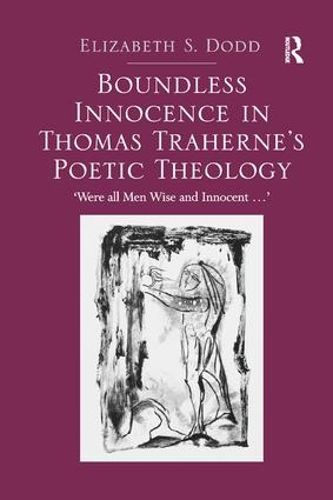Readings Newsletter
Become a Readings Member to make your shopping experience even easier.
Sign in or sign up for free!
You’re not far away from qualifying for FREE standard shipping within Australia
You’ve qualified for FREE standard shipping within Australia
The cart is loading…






The seventeenth-century poet and divine Thomas Traherne finds innocence in every stage of existence. He finds it in the chaos at the origins of creation as well as in the blessed order of Eden. He finds it in the activities of grace and the hope of glory, but also in the trials of misery and even in the abyss of the Fall. Boundless Innocence in Thomas Traherne’s Poetic Theology traces innocence through Traherne’s works as it transgresses the boundaries of the estates of the soul. Using grammatical and literary categories it explores various aspects of his poetic theology of innocence, uncovering the boundless desire which is embodied in the yearning cry: ‘Were all Men Wise and Innocent…’
Recovering and reinterpreting a key but increasingly neglected theme in Traherne’s poetic theology, this book addresses fundamental misconceptions of the meaning of innocence in his work. Through a contextual and theological approach, it indicates the unexplored richness, complexity and diversity of this theme in the history of literature and theology.
$9.00 standard shipping within Australia
FREE standard shipping within Australia for orders over $100.00
Express & International shipping calculated at checkout
The seventeenth-century poet and divine Thomas Traherne finds innocence in every stage of existence. He finds it in the chaos at the origins of creation as well as in the blessed order of Eden. He finds it in the activities of grace and the hope of glory, but also in the trials of misery and even in the abyss of the Fall. Boundless Innocence in Thomas Traherne’s Poetic Theology traces innocence through Traherne’s works as it transgresses the boundaries of the estates of the soul. Using grammatical and literary categories it explores various aspects of his poetic theology of innocence, uncovering the boundless desire which is embodied in the yearning cry: ‘Were all Men Wise and Innocent…’
Recovering and reinterpreting a key but increasingly neglected theme in Traherne’s poetic theology, this book addresses fundamental misconceptions of the meaning of innocence in his work. Through a contextual and theological approach, it indicates the unexplored richness, complexity and diversity of this theme in the history of literature and theology.